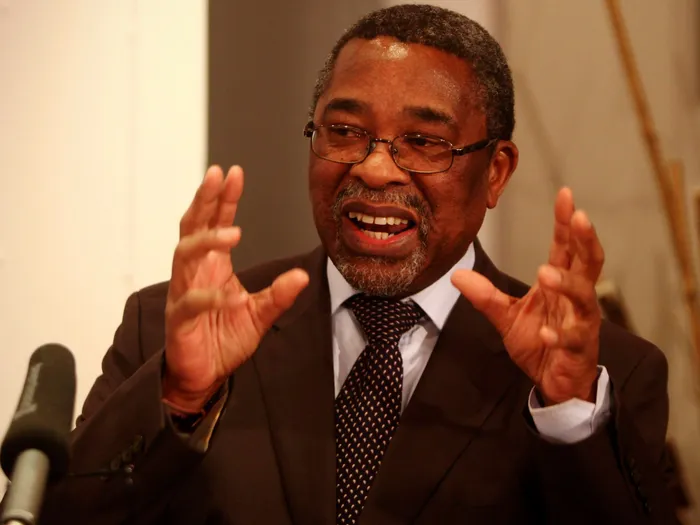
Political economist Moeletsi Mbeki says business is the most trusted institution in South Africa,
Image: Refilwe Modise
While business has sometimes been complicit in corruption and economic mismanagement, it remains the institution that South Africans trust most.
It is also the sector with the resources, organisation, and influence to drive meaningful change.
However, credibility must come first, speakers on a recent Podcast Party SA agreed.
Political economist Moeletsi Mbeki referenced an Edelman survey measuring trust in institutions worldwide.
In South Africa, business emerged as the most trusted institution, while government and political parties ranked among the least trusted, Mbeki said.
Mbeki noted that South African-owned businesses are uniquely positioned to drive national development because their owners are citizens with a vested interest in the country’s success.
Historical disinvestment and sanctions led South Africans to acquire “multiple branches of multinational companies,” strengthening the business’s potential to advance the country, Mbeki said.
Professor Bonang Mohale, Bidvest Group chairman and former chancellor of the University of the Free State, argued that business has a central role in the country’s transformation.
Among social partners such as labour, government, and civil society, he said, “business is the most organised”.
Mohale explained that only business can manage “mega projects on time, on budget, and in full,” and noted that it remains the country’s largest employer, supporting 16.5 million people compared with government’s shrinking workforce of 1.3 million.
Yet Mohale also pointed to business’s failures.
“Business in and of itself can't just save South Africa,” Mohale said, citing scandals such as VBS and state capture. He stressed that for business to be credible, it must first transform itself.
“31 years into democracy, business would have better credibility to be listened to…if they themselves had transformed," said Mohale.
Mohale highlighted ongoing inequalities in the business world.
Some 52.5% of South Africans are women, yet women hold less than 24% of leadership positions, with African women representing less than 4%.
Piet le Roux, CEO of Sakeliga, described South Africa’s economic and governance challenges as the result of political mismanagement rather than business.
“The state South Africa is in…is not the fault of business.”
Le Roux acknowledged business may not have done enough to influence policy but emphasised its potential to shape the future.
Companies should internalise responsibility for creating a conducive business environment rather than relying solely on government, he said.
“The next 10 years are about businesses internalising that responsibility…we're going to have to have a very firm, frank, not always comfortable…bit of boxing over the next few years to steer things in another direction.”
Herman Mashaba, businessman and former politician, raised concerns about big business’s complicity in schemes with political leaders.
“If anyone now tells me today that we need business to rescue this country, I'm beginning to wonder what we mean.”
What South Africa really needs is “a conducive government that can create fair platforms and believes in social justice,” said Mashaba.
Mashaba acknowledged that big business has a role to play but said credibility is lacking.
“South African big business…has played a key role in the corruption of the ANC that we are seeing today and that necessarily needs to be corrected and faced head on,” he said.
Returning to accountability, Mohale pointed to the destruction of the 150-year-old company Tongaat Hulett, attributing it to greed.
“In simple English, for every corruptor there’s a corruptee.”
Mohale recalled that during the first five years of state capture, “we stole R1.5 trillion, and that’s two-thirds of what South African Revenue Services Commissioner Ed Kieswetter collects from business and individuals.”
Yet Mohale said business still has a chance to redeem itself and deliver the leadership the country needs.
“Business is not our second chance…It’s our last chance.”
IOL Business